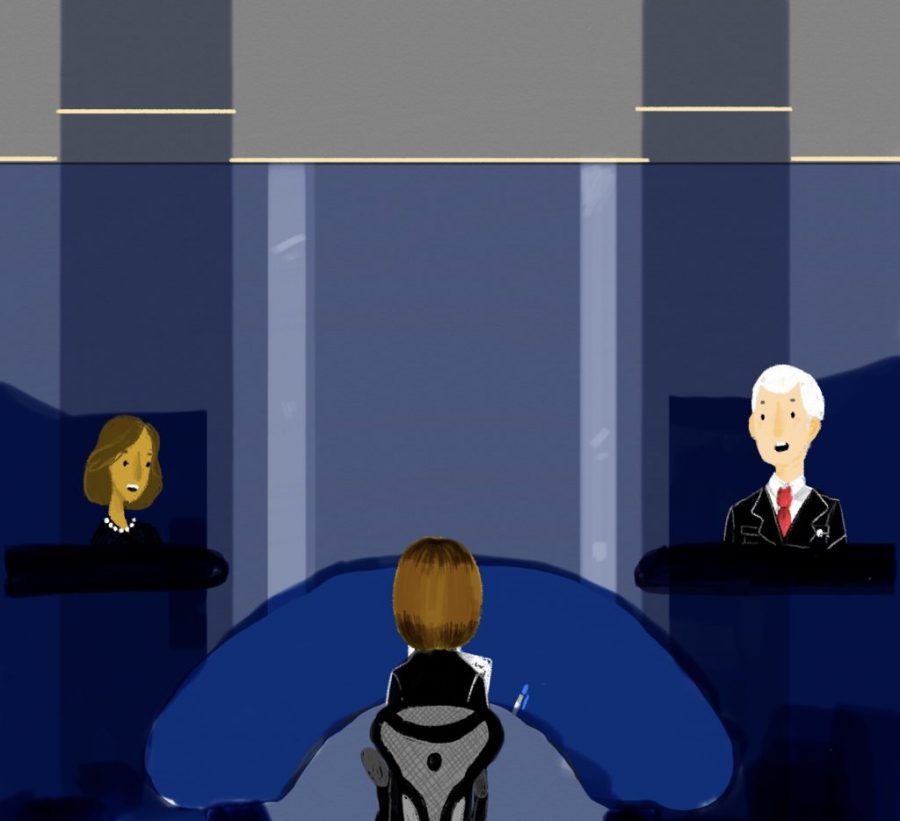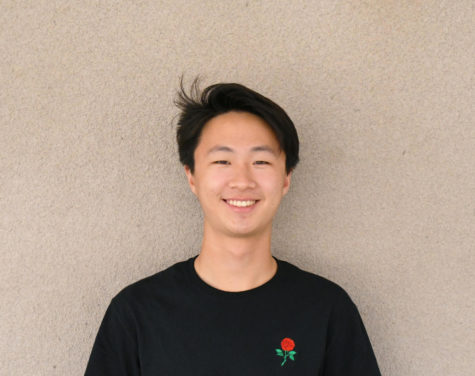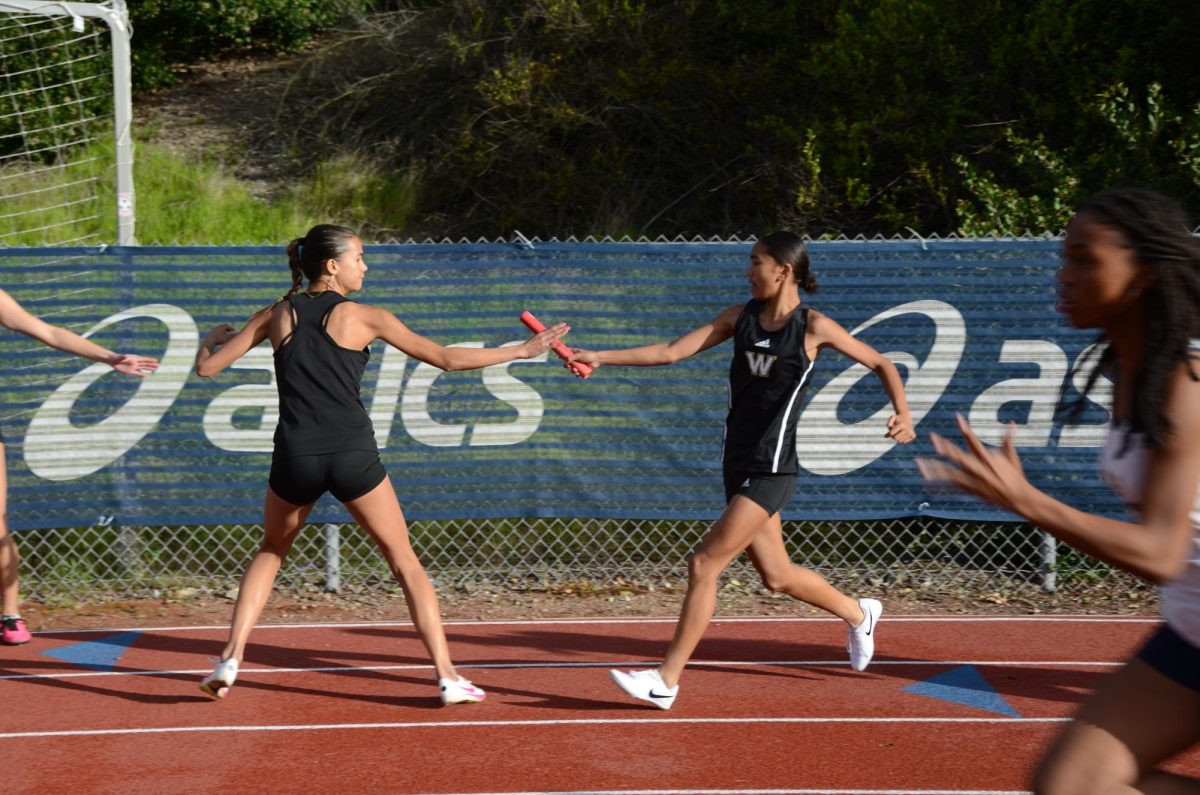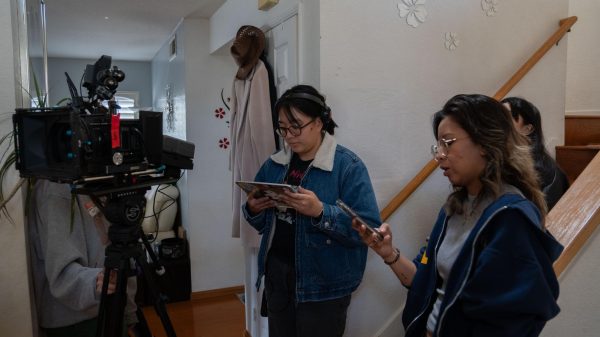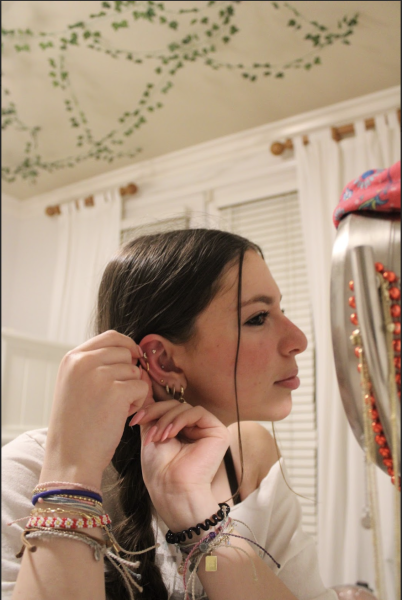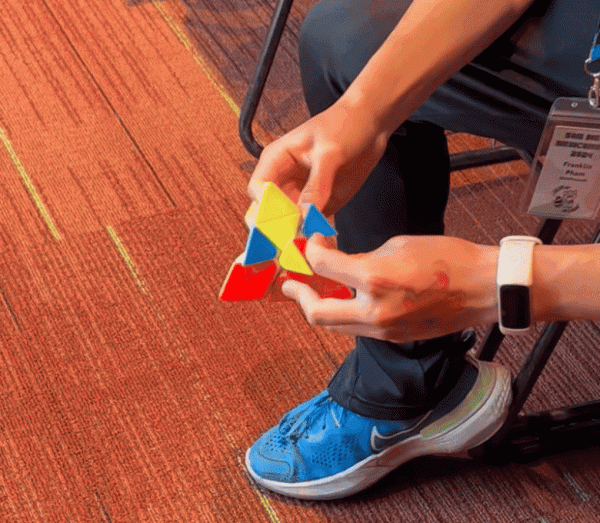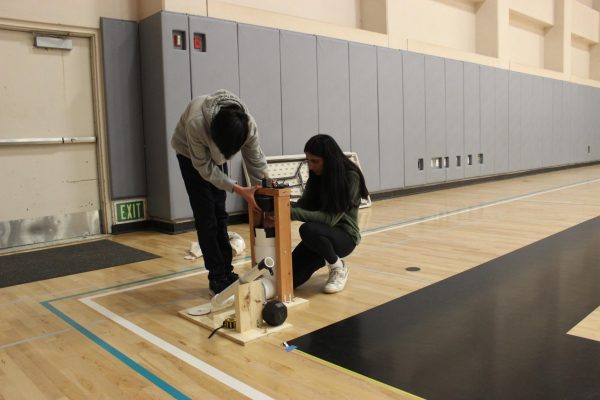Political Awareness Club members share thoughts on Vice Presidential debate
October 8, 2020

Following the Vice Presidential debate Oct. 7, The Nexus interviewed Sarina Oshiro (12), Sophia Chiu (12), and Daniel Shaw (12), members of Westview’s Political Awareness Club. Oshiro and Chiu currently serve as the co-presidents, and Shaw serves as vice president. The three of them have volunteered to work for multiple political campaigns including those of Sunday Gover, Isaac Wang and Scott Peters. Shaw is also an elected district representative for the Scripps Ranch Civic Association. In this interview, the students shared their perspective on the debate.
Below is the full transcript of the Political Awareness Club members’ interview with The Nexus.
After the debate, what are your general reactions to it? Do you think it was productive or insightful?
Shaw: There was a lot of dodging going on throughout the debate from both candidates. We saw Harris try to dodge that Supreme Court packing question rather unsuccessfully, and also Mike Pence dodging questions of things that you would expect him to such as the environment, and on the coronavirus policies. Overall, I don’t think we got very much useful information from this debate. Nothing that hasn’t already been said was brought up, but it did appear, at least on the surface, more civil than the previous debate, which was described as “a dumpster fire in a trainwreck,” if I recall.
Oshiro: I think that we expected Kamala Harris to dodge the Supreme Court question, especially based on exit interviews from the last debate where she had a similar response and dodged the question the exact same way. And I think that Mike Pence and the Trump administration have dodged the same questions that [Pence] was dodging on a pretty consistent basis. I don’t think it was that productive but I think that was what everyone was expecting.
Chiu: I agree, but overall I was impressed with Kamala Harris in her performance. I felt like she was very calm and especially for a female candidate, I feel like it’s very hard to not come off as too aggressive. I thought that it was really impressive that she took her time and she didn’t want any interruptions.
Shaw: I think that Senator Harris did a decent job of asserting herself on the debate stage tonight and making sure that she was able to rebut a lot of the accusations that were thrown at her. Although, I think that overall we saw a lot less interruption from both candidates.
Oshiro: I feel like they were both hyper-aware of interrupting each other. Although, Mike Pence decided to interrupt the moderator instead of interrupting Kamala Harris.
Shaw: Mike Pence’s attack on the moderator, especially being a part of the so-called biased media was fairly interesting. I think in terms of Pence’s strategy, he was trying to gaslight people into projecting a sense of normalcy which might work for a period of the debate, but as soon as the President gets on Twitter, I think that illusion is going to be dispelled.
What do you think that viewers should take into account when they consume media relating to the Presidential election?
Shaw: The networks have their own set of biases when looking at the debate. I think we will certainly expect to see, for example, Fox News proclaim Pence as the winner, and MSNBC proclaim Harris as the winner. The best thing to do is always just to watch the debate for yourself, and see who you think handled the debate better, rather than relying on somebody else, ourselves included, when telling you who won the debate and why. Always be mindful of fact-checking when watching the debate as well.
In your opinion, who do you think won that debate and why?
Oshiro: I feel like Kamala Harris won that debate. I was really impressed with the way she managed to work the camera. I think Joe Biden and Kamala Harris clearly had pretty similar direction as far as talking directly to the camera when they were addressing the American people instead of looking at the moderator or the opponent. I feel like Kamala Harris did it in an even more natural way than Joe Biden did, partially because I think he did it to cut through Donald Trump screaming at him. Kamala Harris did it as a part of her natural flow of talking, which was more effective. I also feel like she answered the questions in a way that was more direct than Mike Pence was, and I liked the way that on every single question she answered, she set it up and took the question from the moderator and established the terms that she was using to talk about in a way that was comprehensible by a regular American person.
Shaw: Historically, vice presidential debates don’t matter that much, and we will see if that changes this year with the president coming down with COVID-19. The implications are that the future presidential debates won’t be on time or that they will be canceled. As a country, though, we do have to recognize that Joe Biden would be 78 and Donald Trump would be 74 years old, so I think that is certainly something that we have to take into account. I think some of the defining moments of the night are actually the non-answers—in this case, Pence’s non-answer on respecting election results and Kamala Harris’s non-answer on packing the Supreme Court—both of which are extremely significant issues.
Oshiro: I think that even though it was a spin and a deflection, she [Harris] had a good spin and deflection on that question of talking about what Donald Trump has done to the courts and what they are trying to do to run Amy Coney Barret through the nomination process.
Shaw: It does remain the fact that she [Harris] didn’t answer that question, and she and the Biden campaign are definitely going to be attacked on that front. Perhaps the more alarming thing is that Pence gave his non-answer in respecting election results. I think that the fairest view is to call this a draw, which I did not expect coming into the debate, but I expected Senator Harris to come out on top and given how the debate went I don’t think it’s fair to say that either did a good job on educating the American people on their policies and positions. I do think Senator Harris was able to elaborate somewhat on her campaign’s policy positions especially, for example, building a greener economy. As a whole, though, the debates haven’t been really instructive. And also they move very quickly—there doesn’t seem to be enough time to focus on a single issue in depth.
Chiu: I thought that Kamala Harris was the clear winner because during her speeches I was able to identify her use of ethos and pathos, and I really admire how straightforward she was with trying to get to her central themes of honesty and truth. I do think that Pence was an effective speaker, but I think when you really look at the policies behind his words, I don’t really understand a lot of the plans because I don’t think he established them well. Both he and Trump have this obsession with forest management to prevent wildfires, which is inaccurate. Basically, most fires are caused when the tops of trees are ignited—forest management is when you take branches and other things off of the ground. Ground fires are more caused by human activity. It’s not that accurate in my opinion.
Shaw: I don’t think it’s necessarily surprising that the Trump-Pence campaign doesn’t have the firmest grasp on reality. I think Harris was effective in her criticisms of Trump and Pence’s record and explaining, to a degree, what she and Biden would do differently. But Pence, I think, at least for these 90 minutes, was able to provide a counterbalance to Trump’s usual demeanor.
Oshiro: I feel like anything that Mike Pence does to try and counterbalance Trump is futile because I feel like as soon as Trump gets on Twitter, anything Pence does to try to mitigate that just goes to waste because Trump just throws it out the window. I really liked Harris’ answer on climate change. I also think she did a pretty good job of separating her and Biden’s policy positions from the extreme left. I feel like Pence was trying to attack them from the position of “she’s a radical,” and align her with Alexandria Ocasio-Cortez and the Green New Deal, but I think that she did a good job building off of what Biden did in the presidential debate of kind of separating themselves from the far-left of the Democrats.
Shaw: As a whole, Trump’s strategy has consisted largely of a couple of key points: First, trying to tie Biden to the more far-left, like AOC, Bernie Sanders, Antifa, and other things like suggesting that he plans to ban fracking—Biden and Harris have repeatedly denounced [that ban]. I think those attacks have largely fallen flat. The second thing, which is unsurprising, is Biden’s 47 years in government, the attack being that he hasn’t done anything in 47 years. I also feel that has fallen flat because Trump is the incumbent now—he’s the one in office.
We’ve seen a lot of misinformation in the last two debates. What advice do you have for our peers or anyone else watching to better recognize when something simply is not true?
Shaw: I believe Kellyanne Conway coined the term “alternative facts,” with regard to the fictitious Bowling Green massacre. I would encourage everybody to avoid alternative facts as much as possible—if you’re looking for reporting that is generally without slant, I suggest the Associated Press (AP) or Reuters—those agencies sell news, so they’re incentivized to cover as unbiased a view as possible. As a whole, try not to form your opinions based on what pundits tell you, not on what Fox News, CNN, and MSNBC tell you, and it’s rather unfortunate that a majority of people seem to get their news from these sources, but AP and Reuters are generally reliable, if you’re looking for international news sources Agence France-Presse (AFP), BBC for American politics, generally unbiased and reliable. All in all, if something seems fishy when you are presented with something, look it up.
In general, what do you think are the main issues noted in this debate that were the most important to receive votes?
Chiu: I think the most important topics were COVID-19, racial justice, climate change, and the issue of the Supreme Court.
Oshiro: I feel like climate change is a really important topic just because of how dangerous our situation is, and it’s been consistently growing. The country, based on polls, is more rapidly becoming more aware of how important climate change is. I think candidates talking more in-depth about their policies is going to be really important in the near political future.
Shaw: Every voter is unique and I would never feel entitled to tell people what issues they should vote on. I trust in our fellow Americans enough to at least decide who they’re voting for and why. That being said, I think the most important issue is preserving America’s democratic norms. Nothing can go forward, nothing can change, there will be no policies enacted if the United States does not retain a democratic form of government, one that can be held accountable to democratic norms—not the Democratic party, but deep democracy.
Oshiro: I did want to add that I think offering detailed policies and addressing the concerns that young people are talking about, and establishing these democratic norms and maintaining them, that goes down to a local level. I think people tend to get caught up in the national elections.
Shaw: And frankly, what Senator Harris said was right; democracy is honestly what is on the ballot this November. So I am voting for the candidate that will best be able to preserve institutional norms and ensure the smooth functioning of a free society.
Oshiro: I think offering detailed policies and addressing all the concerns young people are talking about and establishing those democratic norms while maintaining them, I think that that goes all the way down to a local level as well. I think a lot of people tend to get caught up in the national elections, which are really important, but I feel like when you are talking especially about those issues that Sophia mentioned and climate change and things like that, a lot of local officials have way more power over that to get substantial things done versus when you get to Congress you end up in gridlock and people begin going into circles, so I feel like just as young voters and as young people, we need to focus on a lot more on the local elections as well.
Shaw: The nationalization of local politics is very unfortunate. There used to be ticket-splitting on a local level, and that’s not something that really happens anymore. As a whole, Americans are, unfortunately, not involved enough in their local elections. Turnout on local elections tends to be a lot lower than on national elections, which is already pretty low. I believe a good 40% of state legislative seats were completely uncontested in the last electoral cycle, which is a shocking statistic. How do we call ourselves a democracy when nearly half of the seats in the state legislative houses are not contested at all? So, an interesting question to consider. But yes, certainly, research your local candidates, know what issues they stand on, know what issues you care about.
Do you have any final thoughts on the debate, overall?
Chiu: For people who feel discouraged by our current circumstances and want to make positive changes in our community, there are other ways to get involved besides voting. If you’re too young to vote or anything like that, there’s volunteering, helping educate others, and other opportunities out there that people can get involved in.
Shaw: Yes, and I agree. Sophia brings up a really important point here; democracy is not just the practice of going to a ballot box and putting your vote in. Democracy is, in essence, a way of life. It’s a way of life that requires us to be engaged in our civic institutions, it’s a way of life that requires us to view our political opponents as people whom we can trust to handle the country even if we lose. It requires us to accept elections that we win or lose, and that is something that makes me extremely worried for the future of democracy in this country. If people become less civically engaged, if people can no longer trust their friends and neighbors all around the country if they lose the election, then that puts our future as a democracy in jeopardy.
*Transcript compiled by Rachael Hudak, YJ Si, and Grace Tseng.


